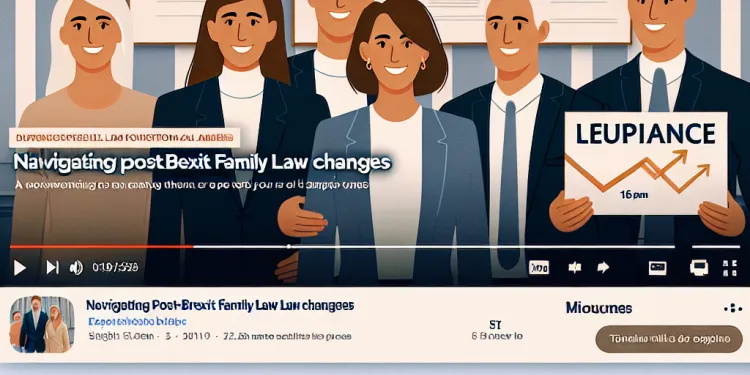
Find Help
More Items From Ergsy search
-
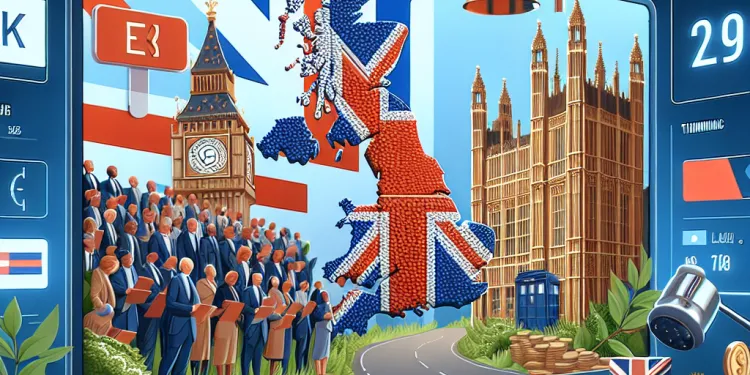
Navigating Changes in Family Law Post-Brexit
Relevance: 100%
-
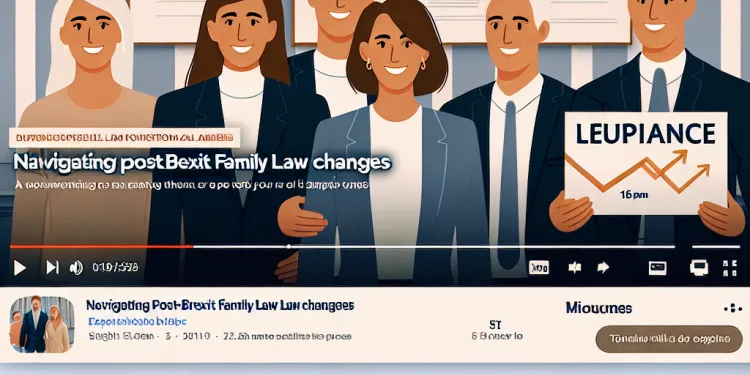
Navigating Post-Brexit Family Law Changes
Relevance: 100%
-

What are the changes to Family Court Law in 2026?
Relevance: 55%
-
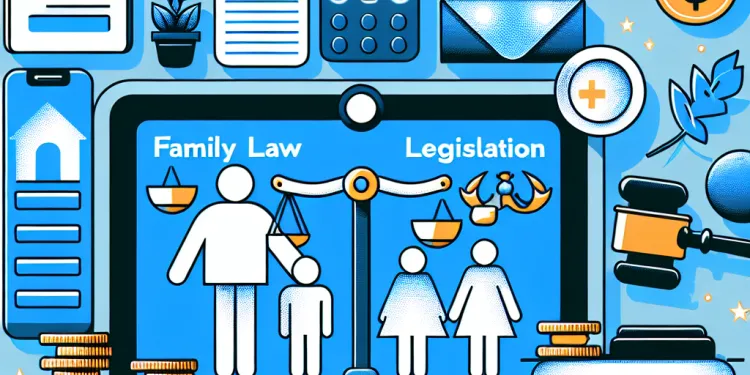
Impacts of Recent Changes to Family Law Legislation
Relevance: 54%
-

Are there any changes to surrogacy arrangements under the 2026 family court law?
Relevance: 47%
-

What changes have been made to mediation in family law cases in 2026?
Relevance: 46%
-

What are the key changes to family court law in 2026?
Relevance: 42%
-

Magistrates in the Family Court: A Private Law Case
Relevance: 41%
-

How have child custody laws changed in 2026?
Relevance: 41%
-
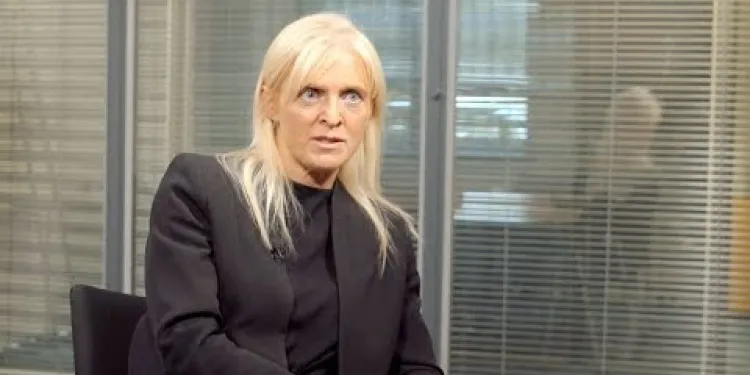
Child Care Proceedings | Family Law
Relevance: 37%
-

Magistrates in the Family Court: A Public Law Case
Relevance: 37%
-

Have the rights of same-sex couples been affected by the 2026 family court changes?
Relevance: 35%
-

Emergency Legal Guidance: Navigating the Impact of Sudden Policy Changes on Families
Relevance: 34%
-

Does the HMRC Employer Bulletin cover changes in employment law?
Relevance: 34%
-
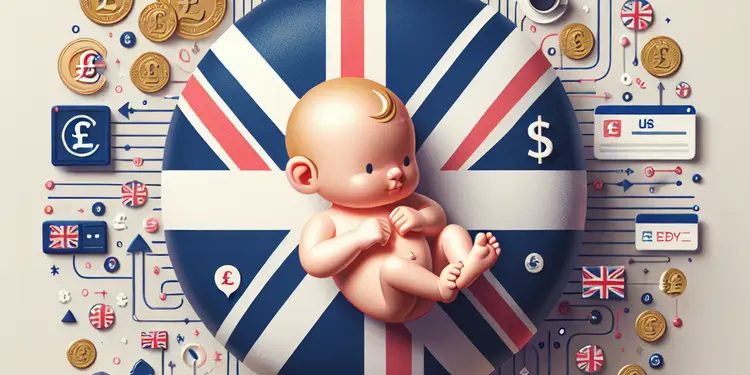
Have the rules for changing a child's name in family court changed in 2026?
Relevance: 33%
-

How have prenup agreements been affected by the 2026 family court changes?
Relevance: 30%
-

Understanding the New Domestic Abuse Laws in the UK
Relevance: 29%
-

Are there modifications to legal aid access in family court for 2026?
Relevance: 27%
-

Are there specific laws governing SEND in schools?
Relevance: 27%
-

Who can be considered a domestic abuse perpetrator under the new law?
Relevance: 26%
-

Navigating Child Custody Laws in the UK
Relevance: 25%
-

Are there any laws against binge drinking?
Relevance: 25%
-

The Family Court without a Lawyer
Relevance: 24%
-

What is adverse possession in property law?
Relevance: 24%
-

How are rent increases regulated under the new law?
Relevance: 24%
-

How do governments ensure compliance with wealth tax laws?
Relevance: 23%
-

Are there privacy laws that protect me from neighbor's cameras?
Relevance: 23%
-

Are there specific laws against dangerous driving?
Relevance: 23%
-

What are the new Tenancy Law Reforms in the UK in 2025?
Relevance: 23%
-

Can cremation ashes be divided among family members?
Relevance: 23%
-

Do existing UK laws sufficiently protect under 16s on social media?
Relevance: 23%
-

Are there changes to the eviction process?
Relevance: 23%
-

What are the new protocols for domestic violence cases in family court in 2026?
Relevance: 23%
-

Are there any changes to spousal support regulations in 2026?
Relevance: 23%
-
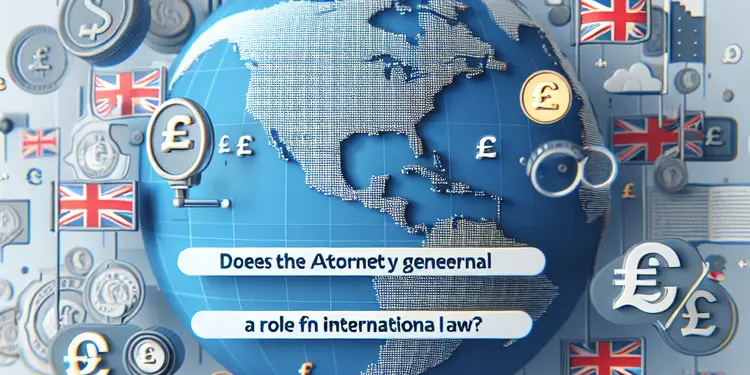
Does the Attorney General have a role in international law?
Relevance: 23%
-
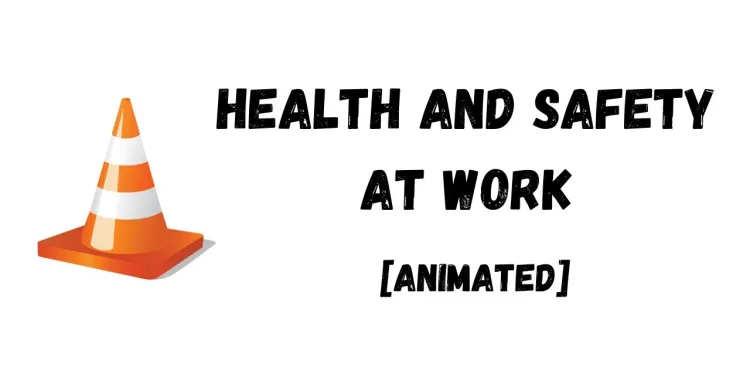
THE LAW IN 60 SECONDS | HEALTH AND SAFETY AT WORK
Relevance: 22%
-
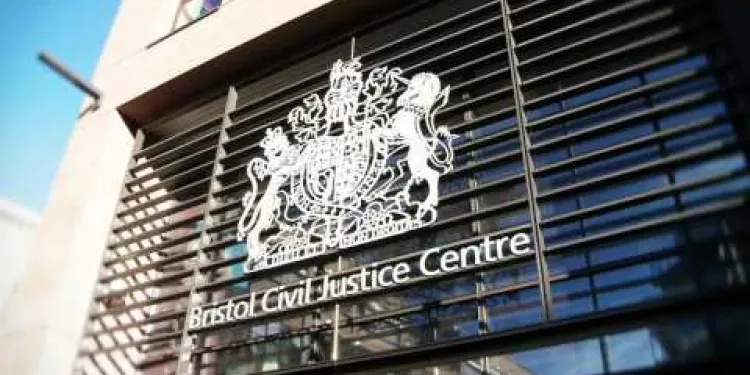
The Family Court without a Lawyer - Video 1 of 3
Relevance: 22%
-

What if my circumstances change?
Relevance: 22%
-

How are ashes returned to the family?
Relevance: 22%
-

The Benefits of Family Activities
Relevance: 22%
Navigating Post-Brexit Family Law Changes
Introduction
The United Kingdom's departure from the European Union has brought about significant changes in various domains, including family law. With the transition period ending on 31 December 2020, new legislations and frameworks were introduced to address family law matters involving cross-border cases. This guide aims to help you understand and navigate these changes effectively.
Jurisdiction and Recognition
One of the key aspects affected by Brexit is the jurisdiction and recognition of family law orders. Prior to Brexit, EU regulations like Brussels IIa provided clear rules on jurisdiction and mutual recognition of judgments across EU member states. Post-Brexit, these EU regulations no longer apply to the UK. Instead, the UK now relies on the Hague Conventions on international family law matters, including child abduction and international custody disputes. It is essential for those involved in cross-border family law cases to seek legal advice to understand which laws and regulations apply.
Divorce and Financial Settlements
The process for dealing with divorce and related financial settlements has also been impacted by the UK's exit from the EU. The EU Maintenance Regulation, which ensured the mutual recognition and enforcement of maintenance decisions across member states, no longer applies. The UK now has to rely on the Hague Convention on the International Recovery of Child Support and other forms of Family Maintenance. This change means that procedures might become lengthier and more complex, requiring careful navigation through the new legal framework.
Child Custody and Abduction
Post-Brexit, child custody and abduction cases involving EU countries are subject to different rules. The UK is now reliant on the 1980 Hague Convention on the Civil Aspects of International Child Abduction. While this provides a legal basis for dealing with international child abduction cases, it lacks the detailed procedural mechanisms provided by Brussels IIa. Parents facing cross-border custody disputes should obtain expert legal advice to manage these cases effectively under the new regime.
Conclusion
In summary, navigating post-Brexit family law changes requires a thorough understanding of the new legal landscape. With the shift from EU regulations to international conventions like the Hague Convention, individuals involved in cross-border family law matters need to be aware of the changes and seek appropriate legal guidance. Though more complex, ensuring compliance with the new regulations is crucial for the fair and effective resolution of family law disputes.
Navigating Family Law Changes After Brexit
Introduction
When the United Kingdom left the European Union, many things changed, including family law. New rules started on 31 December 2020. These rules help with family matters that involve more than one country. This guide will help you understand these changes.
Rules and Recognition
Brexit changed how the UK and EU countries work together on family law cases. Before Brexit, all EU countries followed the same rules. Now, the UK uses different international rules called the Hague Conventions. These handle important family issues like child abduction or custody when countries are involved. If your family case involves more than one country, it is important to talk to a lawyer. They will help you understand which rules apply to your case.
Divorce and Money
Brexit also changed divorce and money matters. Before, the EU had rules to make sure decisions about money were agreed upon by all member countries. Now the UK uses the Hague rules for money support, like child support. These changes could make some processes longer and harder to follow. It is important to get help to understand and deal with these new rules.
Child Custody and Abduction
Now that Brexit has happened, the UK and EU countries use different rules for child custody and abduction cases. The UK uses the 1980 Hague Convention to handle child abduction internationally. But these rules are not as detailed as the old EU rules. Parents who have to deal with custody issues in other countries should talk to experts for help. They can guide you through these changes.
Conclusion
To deal with family law after Brexit, you need to understand the new rules. The UK now uses international conventions such as the Hague Conventions instead of EU rules. If your family law case involves different countries, it's important to know these changes and talk to a lawyer. Even though these changes can be confusing, following the new rules is important for solving family law problems fairly.
Frequently Asked Questions
What are the major changes in family law post-Brexit?
Post-Brexit, the UK is no longer bound by EU regulations such as Brussels IIa, which governed jurisdiction and recognition of judgments in matrimonial matters. This means different rules now apply for cross-border family issues.
Do UK courts still recognise EU divorces?
Yes, UK courts will generally still recognise EU divorces, but the specific rules and procedures may have changed, and it’s advisable to seek legal advice for cross-border cases.
How have child custody arrangements changed post-Brexit?
Child custody arrangements involving EU countries may be more complex. The UK now relies on the 1996 Hague Convention for jurisdiction and enforcement of decisions, rather than EU laws.
Is the UK still part of the European Family Law Network?
No, the UK is no longer part of the European Family Law Network but continues to adhere to international agreements like the Hague Conventions to manage cross-border family matters.
How does Brexit affect international child abduction cases?
The UK continues to follow the 1980 Hague Convention on the Civil Aspects of International Child Abduction, ensuring that procedures for the return of abducted children are upheld.
What is the impact of Brexit on maintenance payments across borders?
Cross-border maintenance payments are now governed by the 2007 Hague Maintenance Convention instead of EU rules, which could lead to additional legal complexity.
Do I need to re-apply for custody orders granted in an EU country pre-Brexit?
Generally, pre-Brexit custody orders will still be recognised, but it's advisable to consult a family law solicitor to ensure they are enforceable post-Brexit.
Will my prenuptial agreement be valid across the EU post-Brexit?
While prenuptial agreements made in the UK should still generally be valid, the enforceability across EU member states may vary and should be examined on a case-by-case basis.
How has Brexit affected parental responsibility for international cases?
Parental responsibility cases now follow international conventions rather than EU-specific regulations, potentially adding complexity to cases involving multiple jurisdictions.
Can I still get legal aid for cross-border family disputes?
Legal aid availability may differ post-Brexit, and eligibility will depend on the specific details of your case and the jurisdictions involved.
How do I enforce a UK family court order in the EU now?
Enforcement of UK family court orders in the EU may require different procedures, often based on the respective EU country's adherence to international agreements like the Hague Convention.
Are there new residency requirements for family members post-Brexit?
Residency requirements for family members may have changed, particularly for those from the EU. It’s important to check immigration rules and seek legal advice if needed.
How can I move to an EU country with my child after Brexit?
Moving to an EU country with your child will require you to adhere to the immigration and residency regulations of that country, as well as ensuring compliance with any relevant family court orders.
What are the implications of Brexit on surrogacy arrangements?
Surrogacy arrangements involving EU countries may be more complicated post-Brexit, requiring clear legal agreements and compliance with both UK and EU legal frameworks.
Has the legal process for adopting a child from the EU changed?
Yes, the process for adopting a child from the EU has changed, requiring adherence to the Hague Adoption Convention and potentially additional legal steps to ensure recognition in the UK.
What big changes happened in family law after Brexit?
After Brexit, some rules about family law changed. This means the way we handle some family problems is different now. Here are some key changes:
- Divorce: The process might be different if you or your partner live in a different country.
- Child Custody: Deciding where a child lives might have new rules if one parent lives in another country.
- Child Support: How we make sure parents pay for their children's care can be different now.
If you need help understanding these changes, here are some things you can do:
- Ask a family law expert to explain things in simple words.
- Use online videos or guides that explain family law changes.
- Talk to someone who knows about family law.
It's important to learn about these changes so you can make the best decisions for your family.
After Brexit, the UK does not follow EU rules about family matters anymore. This change means that new rules are used for family issues that involve different countries.
Do UK courts still accept EU divorces?
Are you wondering if a divorce from the EU is still accepted in the UK? The answer is yes. UK courts will accept an EU divorce if it follows the rules.
If it feels confusing, try using:
- Simple lists to break down information.
- Bold text for important points.
- Pictures or diagrams to help explain things.
Yes, UK courts will still usually accept divorces from the EU. But the rules might be different now. It is a good idea to ask a lawyer for help with divorces across countries.
What are the new rules for kids living with parents after Brexit?
Before Brexit, there were rules from the EU about where kids live if their parents split up.
Now, the UK has its own rules. The changes might affect how decisions are made about where kids live and who takes care of them.
If you find this hard to read, ask someone for help or use special tools that read text out loud.
Deciding who looks after children between countries in the EU can be tricky. Now that the UK is not in the EU, it uses a rule called the 1996 Hague Convention to help decide and follow these decisions, instead of EU rules.
Tips for Understanding:
- Use a highlighter to mark important words.
- Ask someone to read it with you.
- Look at one sentence at a time.
Is the UK still part of the European Family Law Network?
The UK used to be in a group with other European countries. They talked about family law, like looking after children and families when people from different countries have problems.
Now, the UK is not in this group anymore because of Brexit. Brexit is when the UK left the European Union.
If you want help to understand more, you can:
- Ask someone you trust to explain it to you.
- Use picture cards to help understand tough ideas.
The UK is not in the European Family Law Network anymore. But it still follows international rules called the Hague Conventions. These rules help the UK deal with family problems that involve more than one country.
What happens to child abduction cases because of Brexit?
The UK still follows a set of rules from 1980. These rules are called the Hague Convention. They help children who have been taken away from their homes in other countries. The rules make sure these children can go back home.
How does Brexit change paying money to family in other countries?
Brexit is when the UK left the EU.
This can change how people send money to family in other countries. This money is for things like child support.
Here are some tips to help:
- Ask for help if you are not sure what to do. You can talk to a lawyer or someone who knows about the rules.
- Use a translator if you need to read or write in another language.
- Keep a record of all payments and agreements. This helps if there is any confusion.
Paying support money across countries is now under new rules from a 2007 agreement called the Hague Maintenance Convention. This makes the process a bit more complicated than before.
Tip: If this sounds tricky, you can ask a lawyer for help. A lawyer is someone who knows lots about the law and can make it easier to understand.
Do I need to apply again for child custody orders from an EU country before Brexit?
Before Brexit, custody orders from other countries were accepted. This usually stays the same now. But, it is a good idea to talk to a family lawyer. They can help make sure these orders still work after Brexit.
Tips: You can use tools like text-to-speech readers if you find reading hard.
Will my prenuptial agreement still work in the EU after Brexit?
If you made a prenuptial agreement (a prenup) with your partner, you might wonder if it still works in the EU now that the UK is not part of the EU anymore.
Here are some things you can do:
- Talk to a lawyer who knows about EU laws and prenups.
- Ask if your prenup is okay in the EU countries you care about.
- Check if the prenup needs any changes or updates.
These steps can help make sure your prenup works across different places.
Prenuptial agreements are like rules that people make before they get married. In the UK, these agreements are usually okay to use. If you are in a different country in the EU, these rules might be different. It’s a good idea to check with a lawyer to make sure the rules will work in that country.
What has changed for parents after Brexit when dealing with family issues in other countries?
Brexit is when the UK left the European Union.
If parents live in different countries and need to decide things like where a child should live, Brexit has changed the rules.
Now, the UK follows its own rules and not the EU's rules. This can change how quickly or easily things get sorted out.
If you're dealing with family matters across countries, it can be helpful to talk to a legal expert. They can explain what you need to do.
Parents now have to follow international rules instead of special EU rules. This may make things more complicated when parents live in different countries.
Can I get help with legal costs for family problems in other countries?
Getting legal help might change after Brexit. Whether you can get help depends on your situation and the laws in your area.
How can I make a UK family court order work in the EU now?
If you have a court paper from the UK that says what someone has to do, and they are in the EU, here is how you can make it work:
- Check the rules: Different EU countries might have different rules. Look up what to do in the country you are dealing with.
- Get help: You might want to talk to a lawyer who knows both UK and EU rules. They can help explain what to do.
- Ask for support: Look for groups that help people with court orders in the EU. They can give advice and support.
You can also use tools like:
- A support group or a lawyer
- Easy guides with pictures and simple words
If you have a decision from a UK family court that you want to use in a country in the EU, you might need to follow some special steps. These steps can be different depending on the country. Many countries use rules from something called the Hague Convention to help with this.
Do family members need new rules to live here after Brexit?
Rules for living in a new country might be different for family members, especially if they are from the EU. It's good to check the latest immigration rules. If you are not sure, you can ask a lawyer for help.
How can I move to an EU country with my child after Brexit?
Do you want to move to a country in the EU with your child after Brexit? Here is some easy help.
Steps to follow:
- Choose the EU country you want to live in.
- Check the rules for moving there. Every country might have different rules.
- Make sure you and your child have a passport.
- Find out if you need a visa to live in that country.
- Get all your papers ready, like birth certificates.
Helpful tools:
- Ask someone at a travel center for advice.
- Use websites from the country to learn more.
- Read simple guides about moving after Brexit.
Moving to a new country can be fun. Take your time, and ask for help if you need it!
If you want to move to a country in Europe with your child, you need to follow some rules. These rules help you live there and make sure you follow any family court orders.
What does Brexit mean for surrogacy plans?
Having a baby through surrogacy with countries in the EU can be trickier after Brexit. It needs clear legal agreements. You must follow both UK and EU laws.
Has the way to adopt a child from Europe changed?
Are there new steps to adopt a child from Europe?
Here are some helpful tools and tips:
- Use simple words or pictures to help understand.
- Ask someone you trust to explain it to you.
Yes, the way to adopt a child from the EU has changed. Now, you must follow the Hague Adoption Convention rules. You may also need to do extra legal steps so that the adoption is accepted in the UK.
Useful Links
This website offers general information and is not a substitute for professional advice.
Always seek guidance from qualified professionals.
If you have any medical concerns or need urgent help, contact a healthcare professional or emergency services immediately.
Some of this content was generated with AI assistance. We’ve done our best to keep it accurate, helpful, and human-friendly.
- Ergsy carfully checks the information in the videos we provide here.
- Videos shown by Youtube after a video has completed, have NOT been reviewed by ERGSY.
- To view, click the arrow in centre of video.
- Most of the videos you find here will have subtitles and/or closed captions available.
- You may need to turn these on, and choose your preferred language.
- Go to the video you'd like to watch.
- If closed captions (CC) are available, settings will be visible on the bottom right of the video player.
- To turn on Captions, click settings .
- To turn off Captions, click settings again.
More Items From Ergsy search
-

Navigating Changes in Family Law Post-Brexit
Relevance: 100%
-

Navigating Post-Brexit Family Law Changes
Relevance: 100%
-

What are the changes to Family Court Law in 2026?
Relevance: 55%
-

Impacts of Recent Changes to Family Law Legislation
Relevance: 54%
-

Are there any changes to surrogacy arrangements under the 2026 family court law?
Relevance: 47%
-

What changes have been made to mediation in family law cases in 2026?
Relevance: 46%
-

What are the key changes to family court law in 2026?
Relevance: 42%
-

Magistrates in the Family Court: A Private Law Case
Relevance: 41%
-

How have child custody laws changed in 2026?
Relevance: 41%
-

Child Care Proceedings | Family Law
Relevance: 37%
-

Magistrates in the Family Court: A Public Law Case
Relevance: 37%
-

Have the rights of same-sex couples been affected by the 2026 family court changes?
Relevance: 35%
-

Emergency Legal Guidance: Navigating the Impact of Sudden Policy Changes on Families
Relevance: 34%
-

Does the HMRC Employer Bulletin cover changes in employment law?
Relevance: 34%
-

Have the rules for changing a child's name in family court changed in 2026?
Relevance: 33%
-

How have prenup agreements been affected by the 2026 family court changes?
Relevance: 30%
-

Understanding the New Domestic Abuse Laws in the UK
Relevance: 29%
-

Are there modifications to legal aid access in family court for 2026?
Relevance: 27%
-

Are there specific laws governing SEND in schools?
Relevance: 27%
-

Who can be considered a domestic abuse perpetrator under the new law?
Relevance: 26%
-

Navigating Child Custody Laws in the UK
Relevance: 25%
-

Are there any laws against binge drinking?
Relevance: 25%
-

The Family Court without a Lawyer
Relevance: 24%
-

What is adverse possession in property law?
Relevance: 24%
-

How are rent increases regulated under the new law?
Relevance: 24%
-

How do governments ensure compliance with wealth tax laws?
Relevance: 23%
-

Are there privacy laws that protect me from neighbor's cameras?
Relevance: 23%
-

Are there specific laws against dangerous driving?
Relevance: 23%
-

What are the new Tenancy Law Reforms in the UK in 2025?
Relevance: 23%
-

Can cremation ashes be divided among family members?
Relevance: 23%
-

Do existing UK laws sufficiently protect under 16s on social media?
Relevance: 23%
-

Are there changes to the eviction process?
Relevance: 23%
-

What are the new protocols for domestic violence cases in family court in 2026?
Relevance: 23%
-

Are there any changes to spousal support regulations in 2026?
Relevance: 23%
-

Does the Attorney General have a role in international law?
Relevance: 23%
-

THE LAW IN 60 SECONDS | HEALTH AND SAFETY AT WORK
Relevance: 22%
-

The Family Court without a Lawyer - Video 1 of 3
Relevance: 22%
-

What if my circumstances change?
Relevance: 22%
-

How are ashes returned to the family?
Relevance: 22%
-

The Benefits of Family Activities
Relevance: 22%


